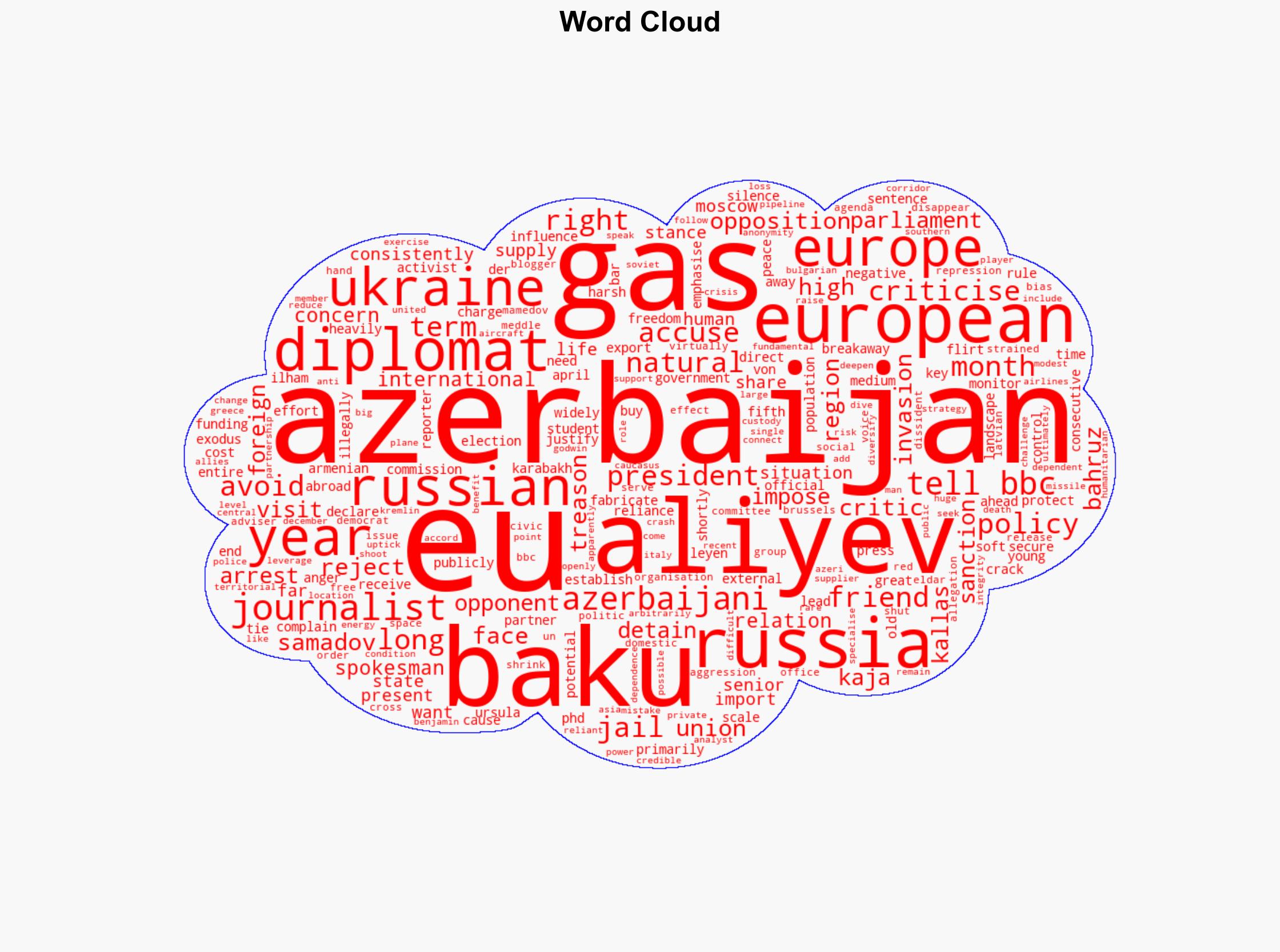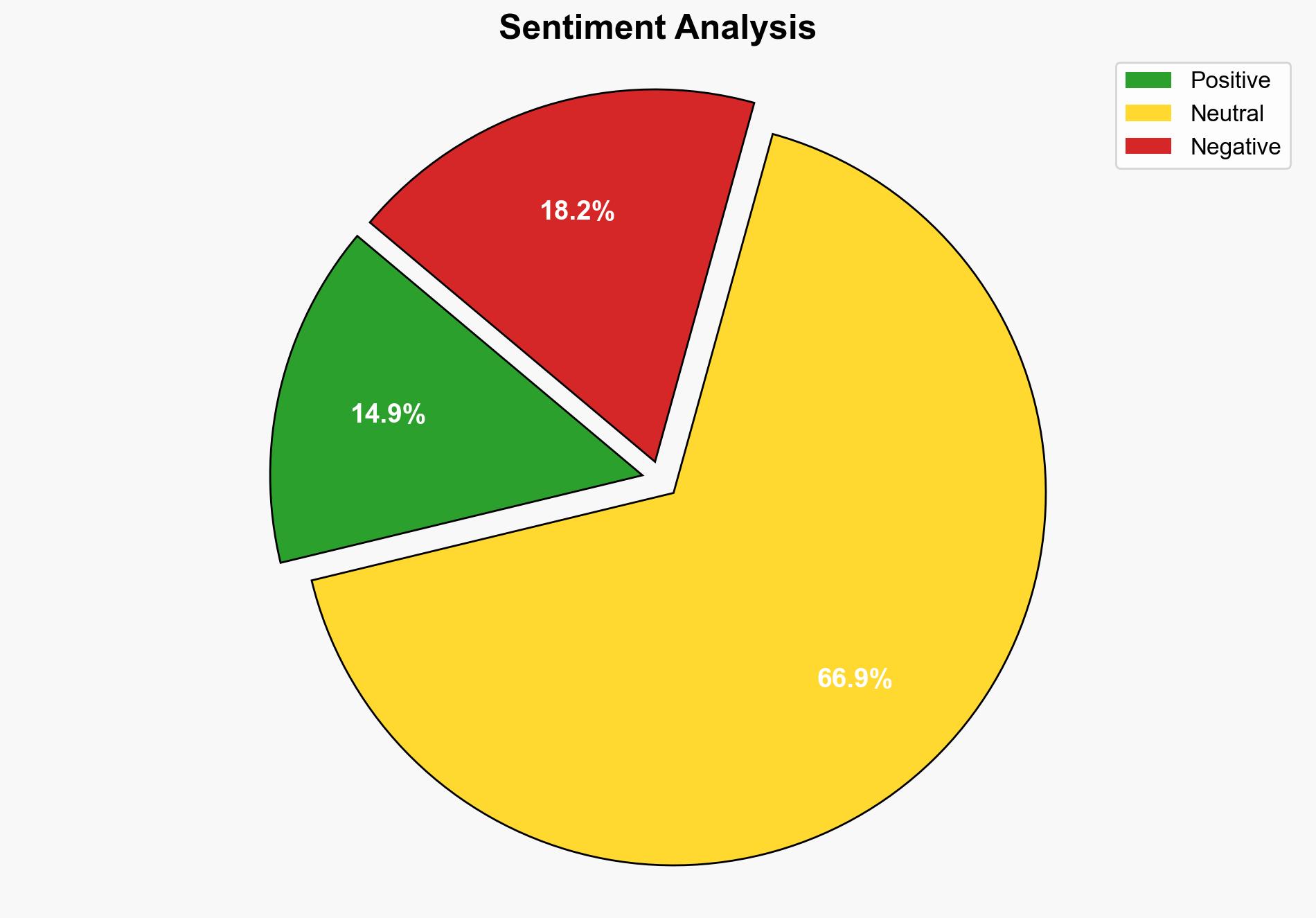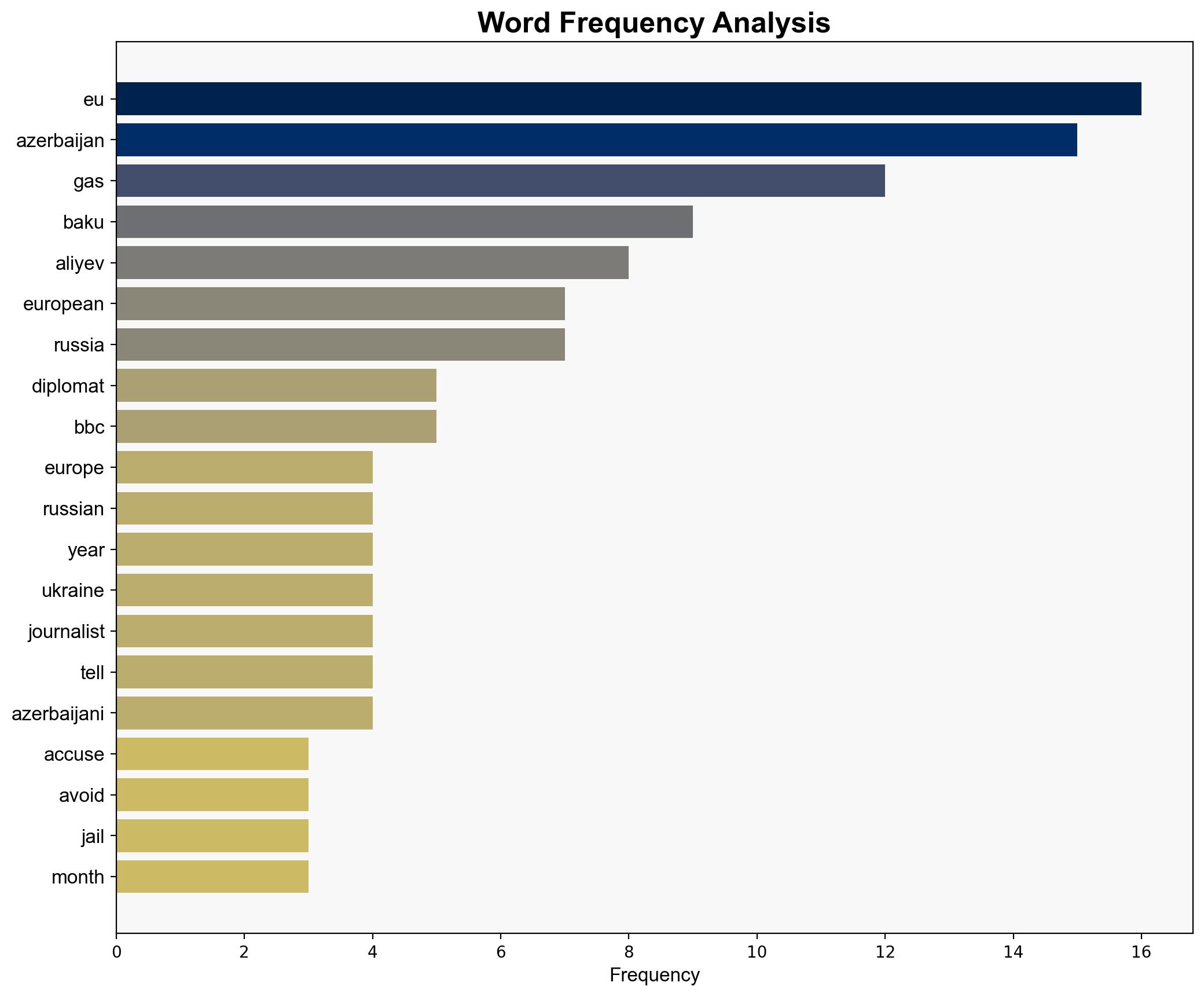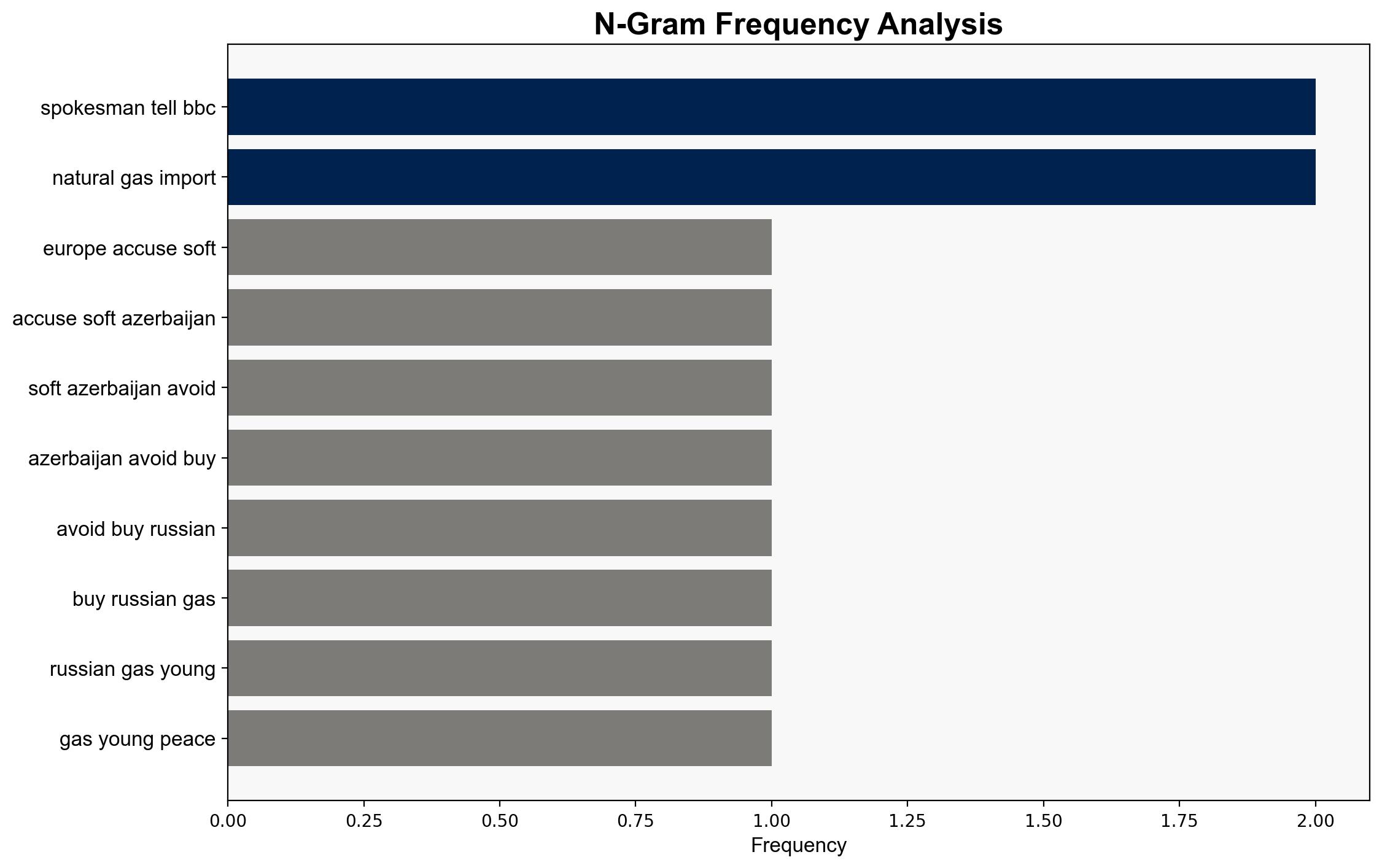Europe accused of going soft on Azerbaijan to avoid buying Russian gas – BBC News
Published on: 2025-07-26
Intelligence Report: Europe accused of going soft on Azerbaijan to avoid buying Russian gas – BBC News
1. BLUF (Bottom Line Up Front)
The most supported hypothesis is that the European Union (EU) is strategically prioritizing energy diversification over human rights advocacy to reduce dependency on Russian gas. Confidence level: Moderate. Recommended action: The EU should balance its energy strategy with human rights considerations to maintain credibility and leverage.
2. Competing Hypotheses
1. **Energy Diversification Hypothesis**: The EU is softening its stance on Azerbaijan’s human rights record to secure alternative energy sources and reduce reliance on Russian gas. This approach is motivated by geopolitical necessity following Russia’s aggression in Ukraine.
2. **Geopolitical Leverage Hypothesis**: The EU’s engagement with Azerbaijan is primarily driven by geopolitical leverage, aiming to counterbalance Russian influence in the region. Human rights concerns are secondary and used selectively to maintain diplomatic flexibility.
Using ACH 2.0, the Energy Diversification Hypothesis is better supported due to the EU’s explicit statements and actions focusing on energy security and diversification, despite criticism over human rights issues.
3. Key Assumptions and Red Flags
– **Assumptions**: The EU assumes that energy security can be prioritized over human rights without long-term reputational damage. It also assumes Azerbaijan will remain a stable and reliable energy partner.
– **Red Flags**: The EU’s silence on human rights abuses could lead to accusations of hypocrisy, undermining its global human rights advocacy. The reliability of Azerbaijan as a partner is uncertain given its internal political dynamics.
– **Blind Spots**: The potential for Azerbaijan to leverage its energy exports for political concessions from the EU is not fully considered.
4. Implications and Strategic Risks
– **Economic**: Increased reliance on Azerbaijani gas could expose the EU to supply disruptions if political instability arises in Azerbaijan.
– **Geopolitical**: The EU’s stance may embolden Azerbaijan’s government to further suppress dissent, potentially destabilizing the region.
– **Psychological**: Perceived EU inconsistency on human rights could weaken its influence in other international negotiations.
5. Recommendations and Outlook
- **Mitigate Risks**: The EU should establish clear benchmarks for human rights improvements in Azerbaijan as part of energy agreements.
- **Exploit Opportunities**: Diversify energy sources further to reduce over-reliance on any single supplier, including Azerbaijan.
- **Scenario Projections**:
– **Best Case**: Azerbaijan improves its human rights record, enhancing EU-Azerbaijan relations.
– **Worst Case**: Political unrest in Azerbaijan disrupts gas supply, forcing the EU to seek emergency alternatives.
– **Most Likely**: The EU continues to prioritize energy security, with incremental progress on human rights dialogue.
6. Key Individuals and Entities
– Ursula von der Leyen
– Ilham Aliyev
– Bahruz Samadov
– Eldar Mamedov
– Benjamin Godwin
7. Thematic Tags
national security threats, energy security, human rights, EU foreign policy, regional stability





